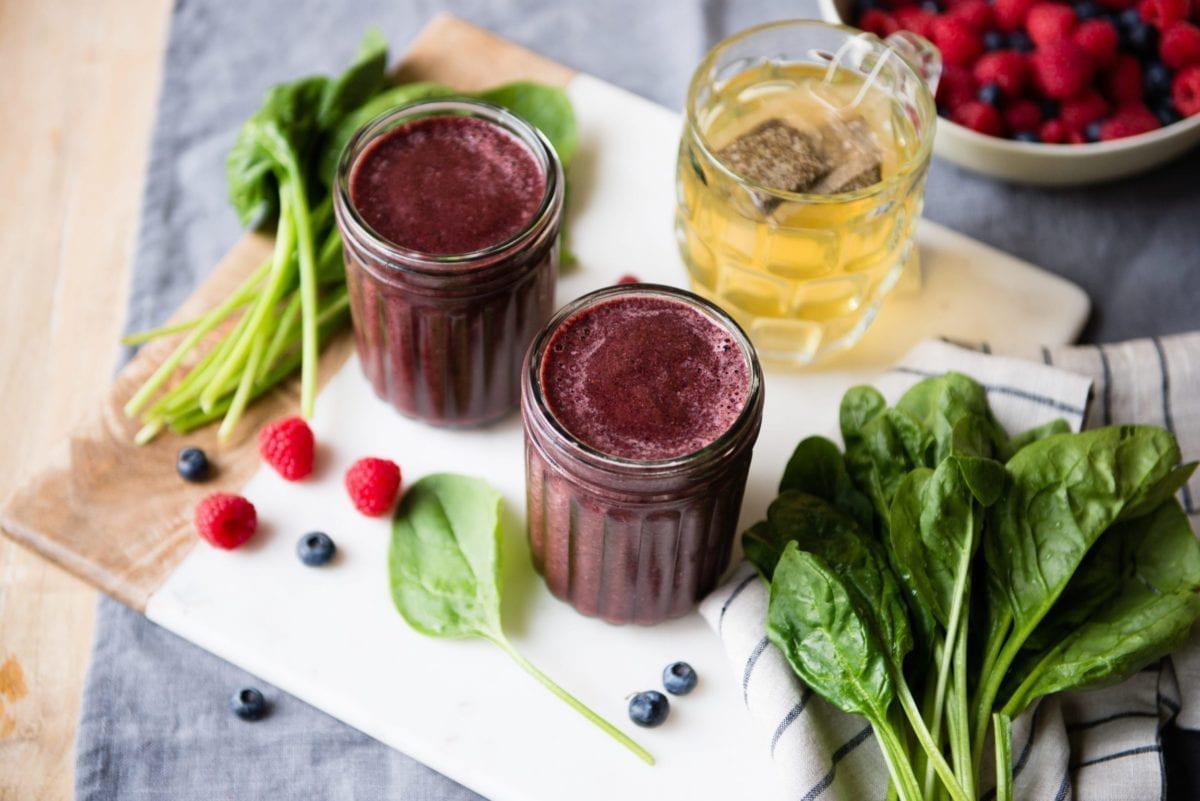Brain Smoothy 1
- 1 cup fresh/frozen spinach
- 1 cup green tea (brewed and chilled)
- 3/4 cups blueberries
- 1 table spoon peanut butter
- 1/2 cup oats
- 1 scoop protein powder (optional)
Brain Smoothy 2
- 1 cup fresh/frozen kale
- 1 cup soya / coconut milk
- 1 banana
- 1 table spoon coconut oil
- 1/2 cup oats
- 1 scoop protein powder (optional)
Brain Smoothy 3
- 1 cup fresh/frozen peas
- 1 cup soya / coconut milk
- 1 banana
- 1 table spoon peanut / almond butter
- 1/4 cup chia seeds
- 1 scoop protein powder (optional)
For better brain health, add these superfoods to your shopping list.
Hemp seeds
Cultivated from the seeds of the hemp plant, Cannabis sativa, hemp seeds contain only trace amounts of THC, the psychoactive compound found in marijuana. These plant-based proteins are high in prebiotic fibre, which supports gut health and helps keep you feeling full, and they’re an excellent source of omega-3 fatty acids that provide a host of brain benefits. In addition, they contain more protein than chia seeds or flaxseeds and they provide all the essential amino acids, which are key for the production of neurotransmitters. Hemp seeds are also high in gamma-linolenic acid (GLA), which research has found can reduce depression in women with PMS. Smart Ways to Eat It: Sprinkle hemp seeds into smoothies or use hemp milk instead of other dairy-free milk alternatives.
Tumeric
A popular Indian spice, turmeric is found in curry and contains a chemical called curcumin that has been shown to decrease the plaques in the brain thought to be responsible for Alzheimer’s disease. For a 2009 study in the Journal of Alzheimer’s Disease, researchers mixed curcumin and vitamin D3 in the blood of Alzheimer’s patients in test tubes and found that it prevented the buildup of the abnormal plaques associated with the disease. More than 7,000 published articles have revealed the benefits of curcumin, including powerful anti-inflammatory properties, as well as antioxidants, blood sugar regulation, and anti-cancer activities. Smart Ways to Eat It: Add flavour to your favourite proteins or vegetables with turmeric-infused curries.
Seaweed and sea vegetables
These superfoods of the sea are forms of algae that are a good source of selenium, tyrosine, and iodine to support healthy thyroid function. When your thyroid is underactive, it can produce symptoms, such as memory problems, inattention, depression, and psychosis. If it is overactive, it can lead to anxiety, sleeplessness, and more. Seaweed and other sea vegetables are also high in fibre, which supports gut health, and they’re packed with vitamins and minerals. Research shows that a brown seaweed called fucoxanthin has shown promise in improving insulin resistance and blood sugar control. Smart Ways to Eat It: Try seaweed snacks instead of chips or use seaweed wraps instead of bread.
Pea Protein
This plant-based protein powder derived from yellow peas packs a nutritious punch, and it provides all 9 of the essential amino acids your body cannot produce. This makes it an ideal vegan substitute for animal proteins that supports healthy neurotransmitter production. Pea protein also provides a good dose of branched-chain amino acids (BCAAs), especially arginine, which promotes blood flow, which is critical for optimal brain function. Low blood flow on brain SPECT imaging has been seen with depression, suicide, bipolar disorder, schizophrenia, ADHD, traumatic brain injury (TBI), hoarding, murder, substance abuse, seizure activity, and more. Fueling your brain and body with pea protein can also help curb cravings, increase mental focus, and boost energy. Smart Ways to Eat It: Use it in smoothies for a powerful start to your day.
Brazil nuts
You don’t have to go all the way to Brazil to get the nutritional benefits of these nuts. With one of the highest concentrations of selenium, they support thyroid function and the immune system. Research in The Journal of Nutrition shows that when selenium levels are too low (or too high), it increases the risk of depression in young adults. A polyphenol called ellagic acid found in Brazil nuts may also have neuroprotective properties and has antidepressant-like effects, according to a growing body of research. Smart Ways to Eat It: Toss Brazil nuts in salads or eat a small handful for a nutritious snack.
Sardines
Sardines are chock full of omega-3 fatty acids as well as choline, a compound that is neuroprotective and useful in support following head trauma. Animal research from 2008 found that a choline-supplemented diet improved spatial memory, reduced brain inflammation, and balanced some deficits related to TBI. Smart Ways to Eat It: Place sardines in half an avocado for a buttery rich meal, or chop them up and “hide” them in a homemade sauce or marinara.
Gluten-free oats
It’s common knowledge that whole oats are full of nutrients, antioxidants, and dietary fibre. But what elevates them to brain superfood status is the high concentration of gamma-aminobutyric acid, or GABA, an amino acid that helps to stabilize electrical activity in the brain and calms over-firing in the brain. This results in a feeling of calmness and more self-control. Low levels of GABA have been found in many psychiatric disorders, including anxiety and some forms of depression. Some research on brainwaves has shown that GABA increases alpha waves (associated with relaxation) and reduces anxiety.

